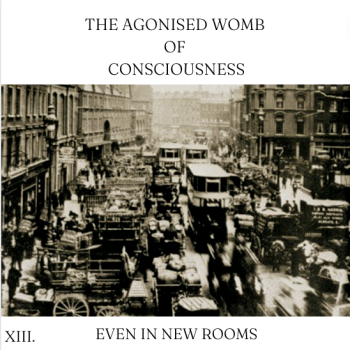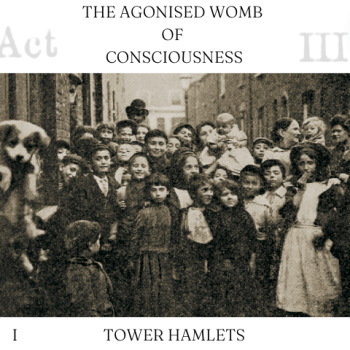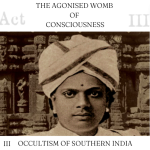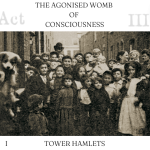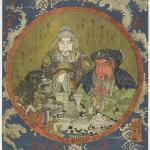THEORY OF UTILITY
ACT II.
IX.
⸻
Dalpatram Shukla treated Moniya like a brother, patiently practicing English with him, and teaching him the peculiar customs and manners of the English people. Moniya’s diet, however, became a serious question. Their landlady did not know how to prepare vegetarian food, and he could not stomach unseasoned boiled vegetables. They had oatmeal for breakfast (which was filling,) but he was famished by the time lunch time and dinner. For both of these meals, the boys ate spinach with bread and jam. Moniya was too embarrassed to request more than two or three slices of bread (it did not seem correct to do so.)
Shukla’s one anxiety was that Moniya would become very weak without meat. As he wanted Moniya to feel at home in England, he endeavored to convince his friend to eat flesh. Moniya, however, was resolute in his vow.
“Had you been my own brother, I would have sent you packing,” said Shukla in frustration. “What is the value of a vow made before an illiterate mother, and in ignorance of conditions here? It is no vow at all. It would not be regarded as a vow in law. It is pure superstition to stick to such a promise. And I tell you this persistence will not help you to gain anything here. You confess to having eaten and relished meat. You took it where it was absolutely unnecessary and will not where it is quite essential. What a pity!”
Moniya was adamant, and the more Shukla argued, the more uncompromising Moniya became. Everyday Moniya prayed for God’s protection—not that he had any real conception of God—it was the seed of faith which had been sown by the good nurse Rambha.

The Courtyard and Gateway of Richmond Palace.
By the time that Shukla began reading Bentham’s Theory of Utility to Moniya, he was at his wits’ end. The English language was too difficult for Moniya to understand, and Shukla began to expound it.
“Pray excuse me,” said Moniya. “These abstruse things are beyond me. I admit it is necessary to eat meat. But I cannot break my vow. I cannot argue about it. I am sure I cannot meet you in argument. But please give me up as foolish or obstinate. I appreciate your love for me, and I know you to be my well-wisher. I also know that you are telling me again and again about this because you care for me. But I am helpless. A vow is a vow. It cannot be broken.”
Shukla looked at Moniya in surprise and closed the book. “Alright. I will not argue anymore.”
Moniya was glad. True to his word, Shukla did not approach the matter again (but he did not cease to worry about Moniya.) Shukla smoked and drank alcohol, but he never once asked Moniya to partake. On the contrary, he requested that Moniya remain away from both.
Richmond, being on the outskirts of the city, meant Moniya could only travel to London once or twice a week. After serving his month-long apprenticeship, Dr. Mehta and Shukla were in agreement that Moniya should board in the home of an Anglo-Indian widow they knew who lived at 20 Baron’s Court Road, West Kensington. Moniya spoke with his new landlady, explaining his vow. The lady promised to look after him properly, and Moniya soon took up residence in her home.[1]
← →
THE AGONIZED WOMB OF CONSCIOUSNESS SECTIONS: “ACT II”
I. THE LITTLE TOY TEMPLE ON NASSAU STREET.
II. UNION OF HEARTS.
III. IN DARKEST LONDON.
IV. NONSENSE OF BROKEN TEACUPS.
V. A CURIOUS REUNION ON WALNUT STREET.
VI. GLORIFIED IN THE LAND OF BABYLON.
VII. ALWAYS THIN AND GRAVE.
VIII. ET IN ARCADIA EGO.
IX. THEORY OF UTILITY.
X. APOLLO BUNDER.
XII. THE SILENT PASSENGER.
XIII. DECCAN PLATEAU.
SOURCES:
[1] Gandhi, M.K. The Story of My Experiments with Truth. Navajivan Press. Ahmedabad, India. (1927): 114-119; Hunt, James D. Gandhi in London. Promilla & Co., Publishers. New Delhi, India. (1978): 8-9.




